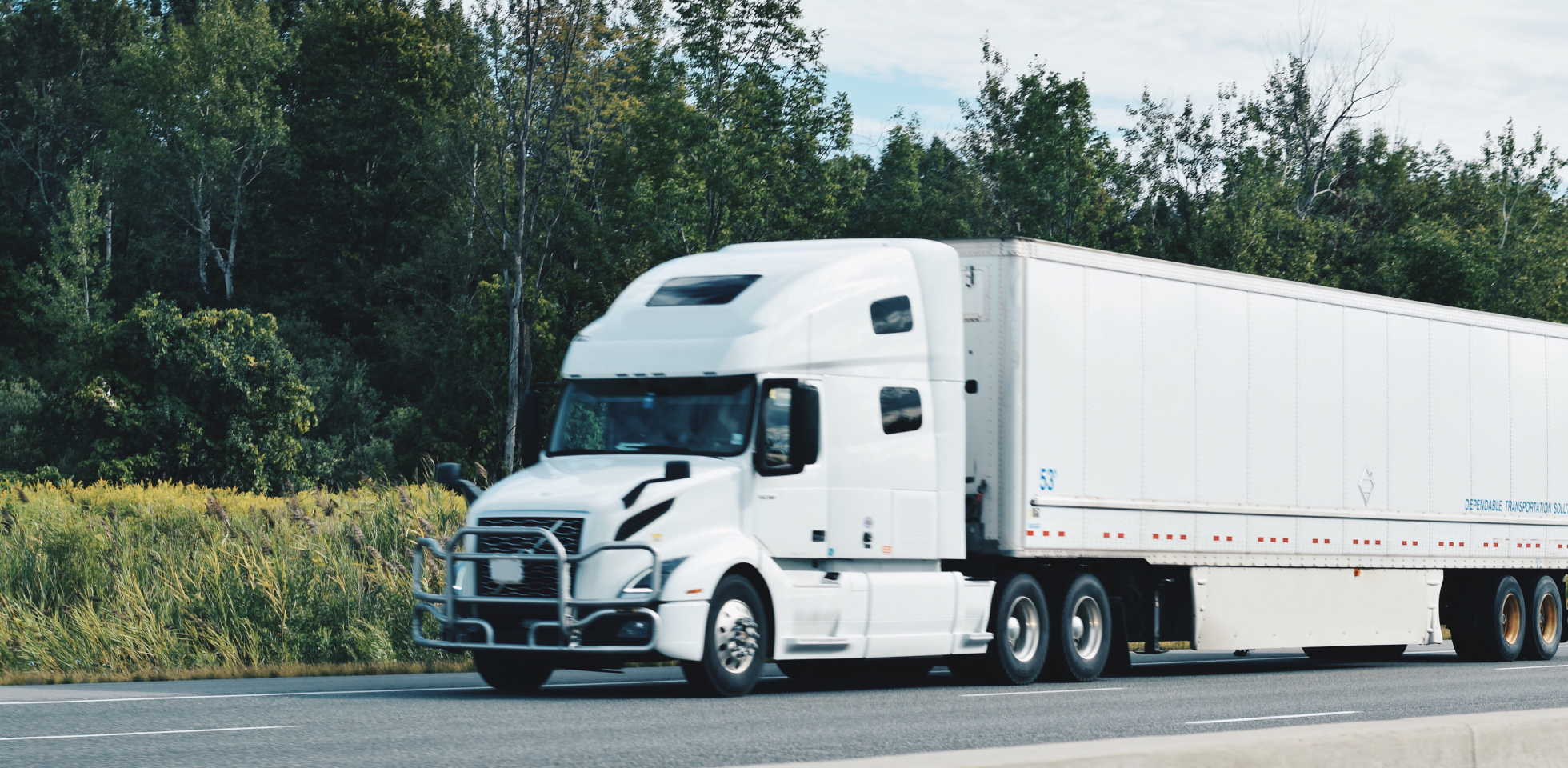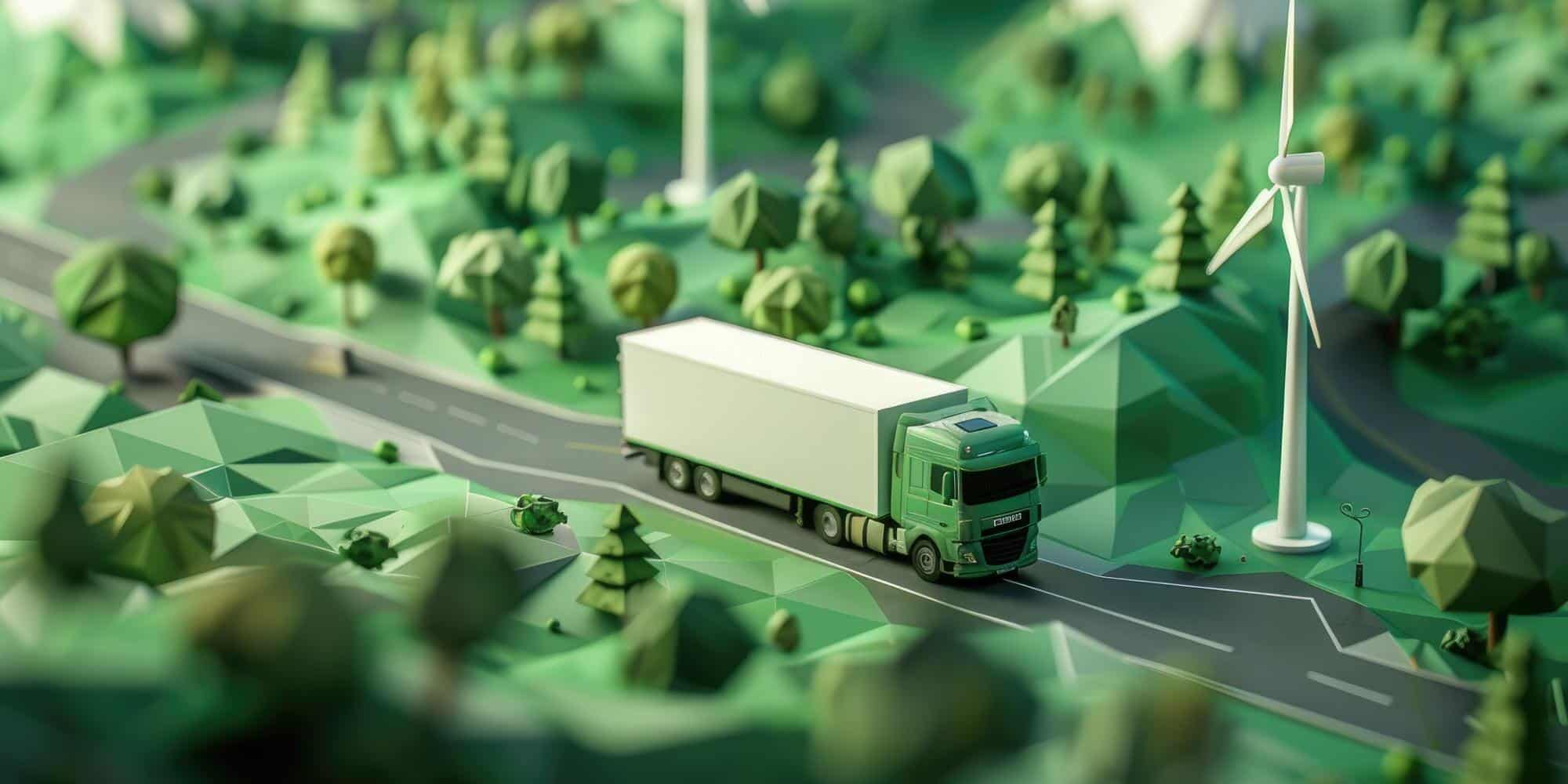We are in constant evolution, and with it, our needs and expectations regarding logistics and goods transportation transform at a dizzying pace. Currently, one of the most pressing and fascinating issues in this area is the pursuit of sustainability. The widespread adoption of electric vehicles and other clean technologies in logistics is becoming an increasingly tangible reality. However, to reach this promising future, it is imperative to overcome various challenges and foster collaboration among the key players in the industry.
This blog will immerse you in the exciting journey towards a cleaner and more efficient logistics future. We will explore in detail the measures and strategies that can pave the way for sustainable logistics. From fleet electrification to the implementation of renewable energy sources and the adoption of environmental standards and regulations, we will break down each aspect of this transformation process. Join us as we delve into these crucial issues and discover how collaboration between companies, governments, and logistics professionals is key to driving significant change.
Together, we will explore the advantages of sustainable logistics, from emission reduction to operational cost savings, and understand why this approach not only benefits the environment but also the companies that adopt responsible practices in the fight against climate change. Get ready for a journey that will show you how sustainable logistics is taking shape in a world that values environmental awareness and efficiency as fundamental elements.
Ready to discover how to drive sustainable logistics and overcome the challenges that arise along the way? Let’s move forward together on this exciting journey towards the future of logistics!
1. Investments in charging infrastructure
One of the main barriers to the adoption of electric vehicles in logistics is insufficient charging infrastructure. Governments and private companies must join forces to build a robust network of accessible and efficient electric charging stations. This is especially important in urban areas where logistics are more concentrated.
- Public investment: Governments can allocate significant funds for the installation of charging stations in strategic locations, such as logistics centers and loading and unloading areas. These investments will not only accelerate the transition to electric vehicles but also create jobs and stimulate the economy.
- Development of public: Infrastructure In addition to investments in private charging stations, it is essential that governments develop a broad public charging infrastructure. This will ensure that electric vehicles have access to a reliable charging network across the country, which is crucial for the expansion of sustainable logistics.
2. Development of more efficient batteries
The limited range of batteries is one of the key challenges of electric vehicles. Ongoing research and development of more efficient and higher capacity batteries are essential to overcome this obstacle. This not only benefits logistics but also the widespread adoption of electric vehicles.
- Investment in Research: Investment in cutting-edge battery research and development should be a priority for both the public and private sectors. Next-generation batteries must offer greater range, faster charging times, and increased durability.
- Industry Collaboration: Automotive and technology companies can collaborate in the development of more advanced and accessible battery technologies. Collaboration between competitors in this field is essential to accelerate progress and bring innovations to market more quickly and efficiently.
3. Public-Private Collaboration
Sustainable logistics is a joint effort between the public and private sectors. Collaboration is essential to promote the adoption of electric vehicles and cleaner practices.
- Tax Incentives: Governments can offer significant tax benefits to companies that invest in electric vehicles and sustainable fleets. These incentives can include tax deductions, credits, and exemptions from property taxes on electric vehicles.
- Smart Regulation: Governments can establish regulations that encourage the adoption of sustainable vehicles and the creation of low-emission zones. These regulations can include restrictions on internal combustion vehicles in congested urban areas and the promotion of financial incentives for the purchase of electric vehicles.
4. Smart Route Planning: Efficient route planning is crucial to make the most of the limited range of electric vehicles. Technology plays a vital role in this aspect.
- Advanced Navigation Systems: The adoption of advanced navigation systems that take into account the location of charging stations can optimize routes and minimize recharge times. These systems can use optimization algorithms to determine the best route based on the location of charging stations and the current battery charge.
- Data Analysis: Real-time data analysis can help adjust routes based on traffic conditions and battery charge. Sensors in vehicles can collect information about traffic, weather, and other factors that affect route efficiency. This data can be used to make real-time decisions and ensure that vehicles reach their destination efficiently.
5. Education and Training
The transition to sustainable logistics requires industry professionals to be trained in clean technologies and efficient practices. - Training Programs: Companies can implement comprehensive training programs to ensure that their staff is up-to-date with the latest technologies and best practices in sustainable logistics. These programs can include training in the operation of electric vehicles, battery maintenance, and efficient route management.
- Collaboration with Educational Institutions: Companies can collaborate with educational institutions and technical training centers to develop specific training programs for sustainable logistics. These programs can include online courses, seminars, and practical workshops that train the next generation of sustainable logistics professionals.
6. Integration of Renewable Energies
The combination of electric vehicles with renewable energy sources can make logistics even more sustainable. Solar Panels The installation of solar panels in logistics centers can generate clean electricity to charge electric vehicles. The roofs of warehouses and parking areas can be used for the installation of solar panels, reducing dependence on the conventional electricity grid and further decreasing the carbon footprint of logistics.
Wind Energy In addition to solar energy, wind energy is another renewable source that can be used to power electric charging stations. The installation of wind turbines in areas near logistics centers can generate clean and sustainable electricity that contributes to the operation of electric vehicles. The combination of solar and wind energy can ensure a constant supply of renewable energy for logistics. 7. Standards and Regulations Governments can play a significant role in promoting sustainable logistics by implementing standards and regulations. Emission Limits Setting stricter emission limits for cargo vehicles can incentivize the adoption of cleaner vehicles. These limits can be based on carbon dioxide emissions and other pollutants, forcing companies to seek more sustainable alternatives.
A Sustainable Future for Logistics Sustainable logistics is not just an option, it is an imperative need in a world where environmental awareness and efficiency are key. While the challenges are real, so are the opportunities. The transition to electric vehicles and cleaner practices in logistics is a crucial step towards a greener and more sustainable future. Collaboration between governments, companies, and logistics professionals is key to carrying out this transformation and ensuring cleaner and more efficient goods transport in our cities.
The impact of the electric vehicle on logistics is a relevant and urgent topic that requires decisive action. As we move towards a more sustainable future, logistics will play a crucial role in reducing the carbon footprint and improving air quality in our cities. Electric vehicles and other clean technologies offer a number of advantages, such as reduced emissions, lower maintenance, and fuel savings. However, for sustainable logistics to become a reality, several challenges need to be overcome, such as insufficient charging infrastructure, limited battery range, and lack of adequate regulations.
Collaboration between the public and private sectors is essential to promote the adoption of electric vehicles and cleaner practices. In addition, it is important to note that sustainable logistics not only benefits the environment but also companies through the reduction of operating costs and the strengthening of their reputation as responsible actors in the fight against climate change. The future of logistics is electric and sustainable, and it is up to us to drive this change towards cleaner and more efficient goods transport.
.png)





